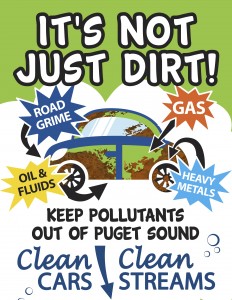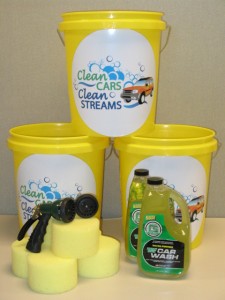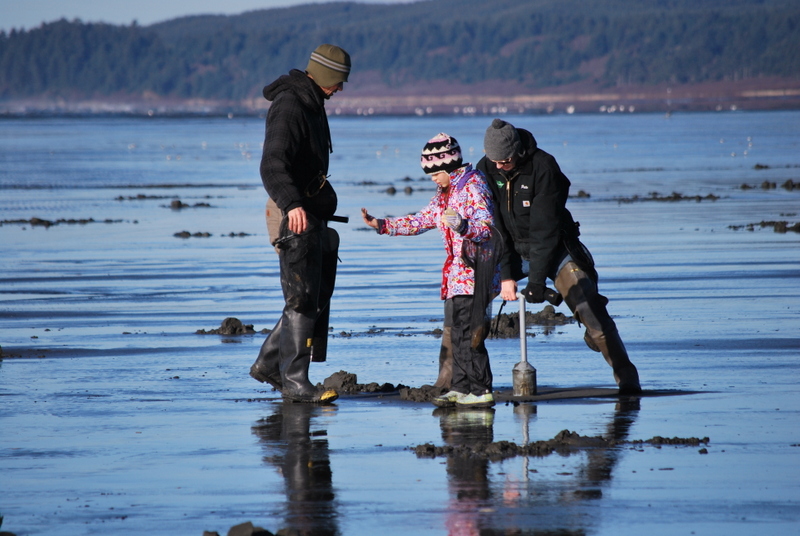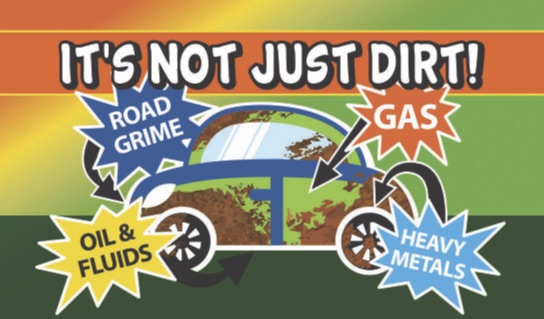Submitted by The City of Olympia
Spring is here and so is fundraising season! Many clubs, teams, and charity groups choose to do carwashes to raise much-needed funds for their programs. Unfortunately, carwash events are often held at locations where the water runs off and ends up in our water bodies. Carwashes held in parking lots, on driveways, or on the street, send the soapy, grimy rinse water to the nearest storm drain.
Many people believe that this dirty water is then sent to a treatment plant to be cleaned but this is not the case. The water from storm drains is piped directly to the nearest body of water, bringing with it toxic pollutants from cars and soap.
 Soap itself can be harmful to the environment, as it often contains phosphates and other nutrients that cause explosive algal blooms upon reaching bodies of water. When this sudden growth of algae eventually dies off, it is decomposed by bacteria that use up oxygen, creating “dead zones” where aquatic organisms do not have enough oxygen to survive.
Soap itself can be harmful to the environment, as it often contains phosphates and other nutrients that cause explosive algal blooms upon reaching bodies of water. When this sudden growth of algae eventually dies off, it is decomposed by bacteria that use up oxygen, creating “dead zones” where aquatic organisms do not have enough oxygen to survive.
It’s more than just dirt that washes off your car. Runoff contains oil and gas, along with pollutants such as antifreeze and heavy metals including zinc and copper. These pollutants affect the quality of our surface and ground water and harm aquatic life. Specifically, heavy metals such as copper are known to impair the olfactory sense (sense of smell) of salmon, crucial to their ability to detect and avoid predators. This may also reduce their ability to find their natal stream. Water containing this toxic mix of pollutants eventually seeps into groundwater- our primary source of drinking water in Thurston County.
The good news is that there are options for raising money from a charity car wash without polluting our streams. The best option is to sell car wash tickets. Check out the Puget Sound Car Wash Association at www.charitycarwash.org for more information on selling customized car wash tickets.
Another option is to make sure your carwash is Clean Cars, Clean Streams approved. This ensures the site you are holding your event offers proper water treatment for the runoff. You can also reserve a free Clean Cars, Clean Streams car wash kit which includes buckets, sponges, hose nozzles, and biodegradable non-toxic soap. It also has Clean Cars Clean Streams information cards to give to drivers of the vehicles you wash. You can find additional information about the Clean Cars Clean Streams program online. To find an approved site or to reserve your kit, contact staff from the jurisdiction where the carwash will be held:
Lacey (360) 438-2687

Olympia (360) 753-8346
Tumwater (360) 754-4148
Thurston County (360) 360-754-3355 ext. 6377
When washing your personal vehicle, the best option is to take it to a commercial carwash. The rinse water at carwash businesses is generally piped to a treatment facility where pollutants are removed before they can harm fish and wildlife. Commercial carwashes also use much less water than DIY car washes. In fact, The Wave Carwash in Lacey recently installed water-saving equipment that allows them to clean and then reuse up to 75% of the water used in the washing process.
They completed this project through a WaterSmart Technology rebate sponsored by LOTT Clean Water Alliance and the City of Lacey, saving almost 900,000 gallons of fresh water per year! This means more water and less pollution for our streams, lakes, and groundwater. Interested in a WaterSmart rebate for your commercial or industrial property? Learn more here.
If you do choose to wash your car at home, the best place to do it is on your lawn. This allows the grass and soil to soak up the water, filtering out some of the pollutants before they reach our waterways. Only use low-phosphate biodegradable soap and be careful not to drive your vehicle on top of your irrigation system or septic drain field.




















































